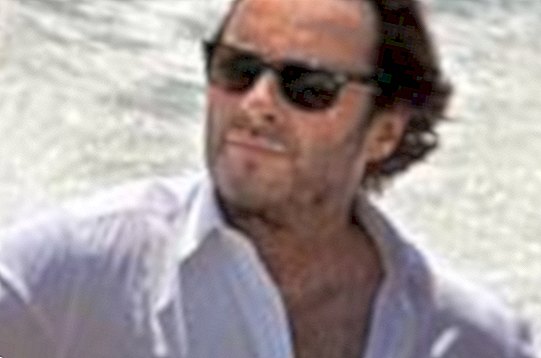The melancholy investigator

He does not feel very comfortable in interviews. Others could do it better, says Uwe Kockisch in a slightly berlin-like tone, be amusing and tell stories. So much restraint would not have expected from this man who appears in jeans and leather jacket to talk. Since 2003, he gives in the film adaptations of the crime bestsellers of Donna Leon the Commissario. Previously, he played for 20 years at the Maxim Gorki Theater and the Schaubühne in Berlin, determined as Commissioner Zappek in the first and recently received the Grimme Prize as the main actor in Dominik Graf's "A city is being blackmailed". Nevertheless, Kockisch, born in 1944 in Cottbus, does not like to be the center of attention.
But when he talks about Guido Brunetti, his commissario, he remembers stories. For example, of female fans who send him love letters: "Many really think that I am Brunetti, the women who write to me are very fond of this commissario, of his way of dealing with things, and so am I."
Brunetti impresses me.
Brunetti, the detective hero of American author Donna Leon, is a pleasant old-fashioned investigator. Always impeccably dressed, he strolls through the narrow streets of Venice, ponders the good in man and desperate for the corrupt society. "He says his opinion, but he does not value others, he wants to make people change things with their own drive, which impresses me," says Kockisch.
The actor is working on his Brunetti since he replaced Joachim Król six years ago. He plays him back, dispensed with big gestures. Sometimes he quarrels with him too. "What is told so extensively in the novels, we just can not play in 90 minutes for the television, the films are a kind of dramaturgical condensation, but I always try to find the Brunetti that Donna Leon has created in her books," explains he. The films are livelier than the literary models, TV entertainment for the whole family. At first Kockisch had a hard time: "For a while I stopped reading the novels, because I did not find many details in the scripts, but now I see that more relaxed and read the stories again - also to avoid the Turn back to look forward to Venice. "
Donna Leon describes the city in which she has lived for years, in her novels down to the smallest detail. In the meantime, there are even city tours in the footsteps of their famous commissario. Kockisch shoots there three months a year, spending the rest of the year living with his partner in Madrid, close to Retiro Park. There he feels more comfortable than in Berlin, and Venice would be too exhausting for him in the long term: "You can not bear so much beauty all the time, you would be stupid."

He can get upset about irreverent tourists. He recently called a group of Americans back in shorts to visit a cathedral in Venice. Kockisch does not give this little anecdote, he plays it. Call loudly "Stop, do not come in here!" and "That can not be true!". He is not a great storyteller, he is an actor.
That's why he is annoyed by the frequently asked question whether it is not strange to portray an Italian as a German: "As an actor, as an actor, I make other people alive, no matter if it's a historical character like Richard the Third or Oberon Midsummer Night's Dream or just an Italian policeman. "
And he plays with passion. Although Kockisch hardly speaks Italian, but a little commissario is also in him. When his cell phone rings, he apologizes, goes to her and says, "You, it's just not possible, I'm in an interview." And then in a nutshell and very Italian: "Ciao."










